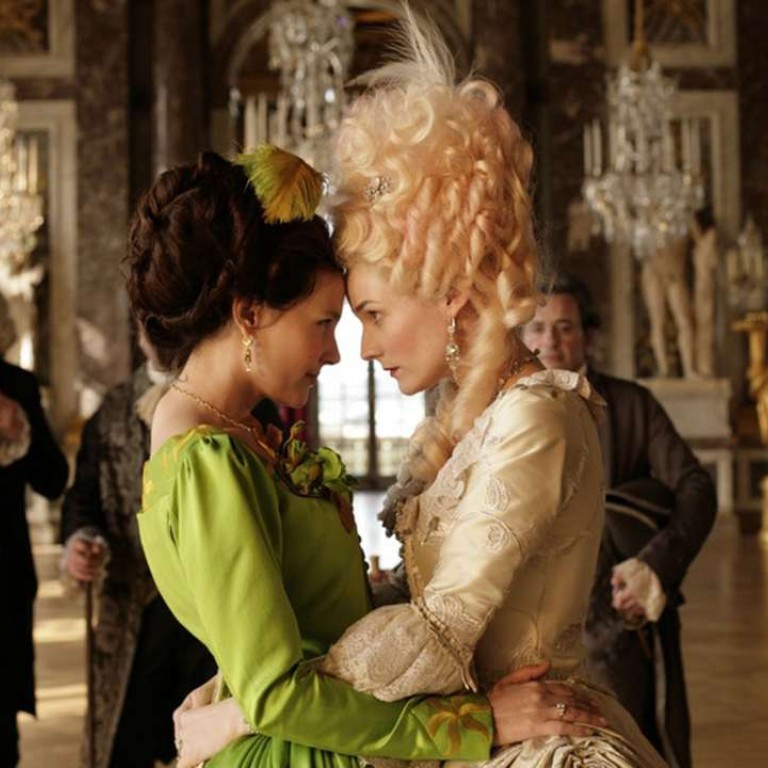
Flashback: Farewell, My Queen – Benoît Jacquot portrays desire at Versailles on the eve of the French Revolution
Marie Antoinette is a sexually manipulative lesbian in this fictitious flirt with historical fact
Like the British, the French regularly turn out period films of varying quality. Farewell, My Queen (2012) stands out because director Benoît Jacquot spends as much time developing the dramatic intrigue as he does depicting the sumptuous costumes and carefully recreated sets.
Based on a 2002 book of the same name by historian and novelist Chantal Thomas, the film is a fictional account of a few days in the life of Marie Antionette, the queen whose profligate lifestyle helped bring about the French Revolution. The film’s big idea is to show the effect of the revolution on the lives of the monarchy through the eyes of a young servant girl, Sidonie.
Events are presented from her subjective viewpoint, and the viewer, like the girl, must piece together what is happening in the wider world from the scraps of information she is able to discover from friends in the palace, and her contact with the queen. Jacquot is rigorous in his approach, and gives the viewer no information that Sidonie could not have acquired.
Farewell, My Queen features real-life characters and events, but is a self-confessed fiction. History unfurls roughly on the correct timeline, but the filmmakers take liberties with the lives of the people involved.
It’s 1789, at the start of the French Revolution, when the French people deposed a financially ruinous monarchy to establish a republic. Sidonie (Léa Seydoux) works at the Palace of Versailles, where she’s employed to read stories to Marie Antoinette (Diane Kruger).

Sidonie has lesbian feelings for the queen, who returns them by means of flirtations. When the people storm the Bastille prison in Paris, an event that signalled the downfall of the monarchy of King Louis XVI, Marie Antionette uses her sexual power to manipulate Sidonie into saving a female lover from execution at the hands of the revolutionaries.
History figures a great deal, but the film is driven by the pent-up sexual desire of Sidonie, who’s played explosively by Seydoux. The actress expresses her character’s repressed passion for the queen in every scene, and Jacquot says he chose Seydoux because she has a “carnality” about her. Revolutionary pamphlets described Marie Antoinette as a lesbian, something that at the time would have blackened her name, but this has never been proved. The whole film is thus a delicious fantasy.
The French rightly love their revolution, and Jacquot shows no sympathy for the queen or her supercilious courtiers. Any revolutionary sympathies would undermine the viewpoint of the royalist character, but Jacquot’s story shows the rich exploiting the servants at every opportunity.
